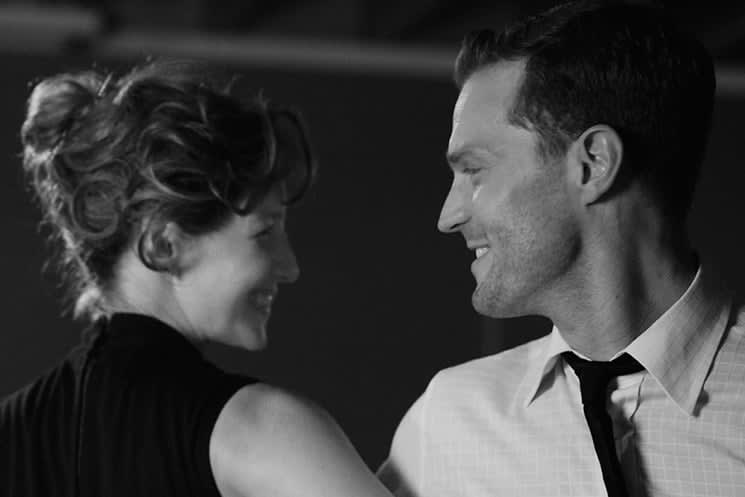During the Q&A following Belfast's Gala Presentation at TIFF, director and writer Kenneth Branagh was asked about the impetus for writing this script. Branagh discussed how the pandemic led him to reflect on his life, particularly his childhood. Lockdown changed his perspective and his idea of home; Belfast was the result of this introspection.
Set in 1969, Belfast tells the coming-of-age story of Buddy (Jude Hill), a nine-year-old boy living in Belfast with his older brother, Ma (Caitríona Balfe) and Pa (Jamie Dornan). As Buddy experiences the usual rites of passage young children do, the conflicts known as the Troubles start to impact daily life. As the situation becomes increasingly violent, Ma and Pa are left with the difficult decision of whether to stay or leave the only home they've ever known.
To bring his childhood to cinematic life, Branagh assembled an exceptional cast. Newcomer Hill steals the show multiple times over. His cheeky performance as Buddy is endearing, hilarious and affecting, balancing childlike wonder with a confident maturity. Balfe has earned some well-deserved early award buzz for her turn as a woman firmly rooted in her Irish culture and desperate to keep her family safe and together. Her and Dornan have a gorgeous chemistry that is on full display in Belfast's beautiful "Everlasting Love" needle-drop.
As great as the cast is, the MVP of Belfast is Sir Kenneth himself. From the many cinematic references to the stunning black-and-white cinematography to the impeccably chosen soundtrack (heavy on Van Morrison, naturally), it's clear Branagh poured his heart and soul into this film. Branagh builds a world he knows intimately and it shows. The streets of Belfast are warm with neighbourly affection until they're not, and the inside of Buddy's home resonates with a lived-in realism steeped in nostalgia.
The end card of the movie dedicates Belfast to those who stayed, those who left, and those whose lives were lost. In doing so, Branagh emphasizes the complexity of the challenges faced by the Northern Irish people at that time; no one decision was correct, and each option was heartbreaking in its own right. Perhaps the greatest achievement of Belfast is that it's specific in its context, but its impact can be felt by all. It's a truly wonderful and moving film that may be Branagh's masterpiece.
(Focus)Set in 1969, Belfast tells the coming-of-age story of Buddy (Jude Hill), a nine-year-old boy living in Belfast with his older brother, Ma (Caitríona Balfe) and Pa (Jamie Dornan). As Buddy experiences the usual rites of passage young children do, the conflicts known as the Troubles start to impact daily life. As the situation becomes increasingly violent, Ma and Pa are left with the difficult decision of whether to stay or leave the only home they've ever known.
To bring his childhood to cinematic life, Branagh assembled an exceptional cast. Newcomer Hill steals the show multiple times over. His cheeky performance as Buddy is endearing, hilarious and affecting, balancing childlike wonder with a confident maturity. Balfe has earned some well-deserved early award buzz for her turn as a woman firmly rooted in her Irish culture and desperate to keep her family safe and together. Her and Dornan have a gorgeous chemistry that is on full display in Belfast's beautiful "Everlasting Love" needle-drop.
As great as the cast is, the MVP of Belfast is Sir Kenneth himself. From the many cinematic references to the stunning black-and-white cinematography to the impeccably chosen soundtrack (heavy on Van Morrison, naturally), it's clear Branagh poured his heart and soul into this film. Branagh builds a world he knows intimately and it shows. The streets of Belfast are warm with neighbourly affection until they're not, and the inside of Buddy's home resonates with a lived-in realism steeped in nostalgia.
The end card of the movie dedicates Belfast to those who stayed, those who left, and those whose lives were lost. In doing so, Branagh emphasizes the complexity of the challenges faced by the Northern Irish people at that time; no one decision was correct, and each option was heartbreaking in its own right. Perhaps the greatest achievement of Belfast is that it's specific in its context, but its impact can be felt by all. It's a truly wonderful and moving film that may be Branagh's masterpiece.
